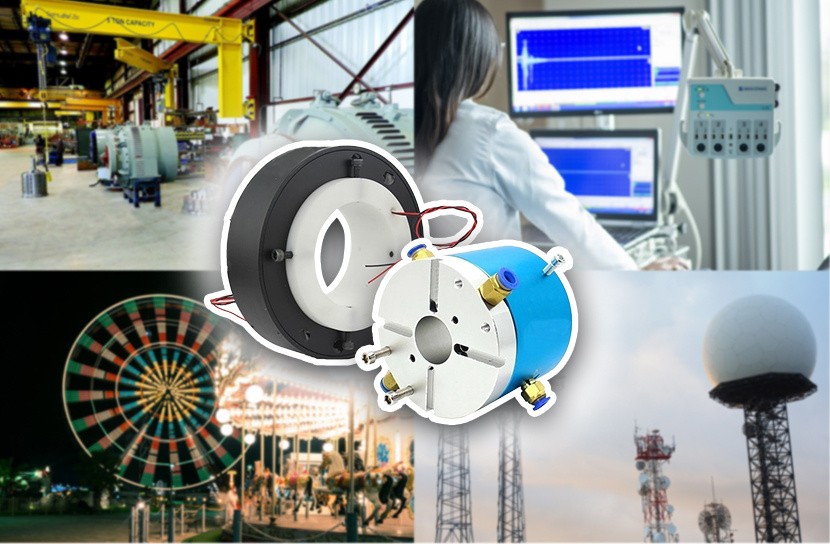
A slip ring is an absolute marvel of electronics since it helps transfer power without stops over a 360° rotation. Slip rings, these silent heroes of the technical world, have been performing their invisible duties for the last several centuries, allowing people to be moved and giving them the chance to receive transmitted power. From the first windmills to the newest robotics and space exploration, these plain and straightforward devices have guaranteed zero-break electrical connections through rotating interfaces.
But the future of slip rings is far from being stagnant. Technological advancements and changing requirements in the industry are pushing these crucial components towards a new dimension in performance, miniaturization, and intelligent features.
Breaking the Speed Barrier
However, traditional slip rings are often limited in data transmission speeds—especially with high-resolution video and more complicated sensor data. Gigabit Ethernet and high-speed slip rings will be the future. These advanced designs employ novel brush materials, prospective contact geometries, and enhanced signal filtering techniques to facilitate noise minimization and signal integrity maintenance at breakneck speed.
Miniature Slip Rings for Modern Tech
The demand for miniature slip rings has increased due to the proliferation of drones, wearable tech, and small robots. These miniaturization wonders are based on micro-etching circuits, particular materials, and advanced manufacturing technology to provide reliable power and data transmission in a constrained environment.
Revolution: Contactless Slip Rings
Traditional slip rings involve making contact using physical brushes that tend to wear and tear; thus, they must be maintained. Enter contactless slip rings that can be considered the game changer for applications that require minimum downtime and long life. These cutting-edge devices use such technologies as inductive coupling, magnetic flux transfer, and radio frequency (RF) to transfer power and data wirelessly across the rotating surface.
Intelligent Integration in Slip Rings
There is more to the slip rings of the future than high speeds and miniature sizes; it's about smartness. We are witnessing sensors, processors, and communication module integration into these devices to allow for real-time monitoring of critical parameters such as temperature, current, and wear. This data can be used for predictive maintenance, performance optimization, and avoidance of costly downtime.
Slip rings are being turned into intelligent nodes with embedded sensors and microchips within a more extensive network. These bright rings can monitor their health, predict potential failures, and adapt their performance in real-time; predictive maintenance and enhanced system uptime become available options.
Data-Centric Transformation of Slip Rings
Slip rings are no longer simply a matter of brute power; they are becoming data channels. It integrates fiber optic channels with substantial data volumes necessary for applications such as high-definition video transmission, real-time sensor monitoring, and advanced industrial automation.
Sustainability in Slip Ring Manufacturing
Manufacturers focus on environment-oriented materials integration and production processes and minimize these essential components' waste and environmental impact. Moreover, some researchers are working on energy-harvesting slip rings that can harness the rotational energy of machines and convert it into useful power, thereby enhancing sustainability initiatives.
Applications
With human beings targeting the stars, slip rings contribute to space missions. These robust devices provide reliable power and data transmission even in very adverse conditions and high temperatures, from satellites orbiting Earth to rovers moving the Martian surface. Future development will concentrate on radiation hardening, miniaturization of nanosatellites, and compatibility with strange space environments.
Here are some specific examples of where you might find slip rings in action:
- Industrial electrical equipment: alternators, wind turbines, fiber optic systems
- Precision electronic equipment: robots, medical devices, radar antennas
- Amusement rides: carousels, Ferris wheels, roller coasters
- Military and defense applications: radar systems, weapon turrets, satellites
ATO Inc.: Innovation in Slip Rings
At ATO Inc., we're at the forefront of slip ring innovation, constantly pushing the boundaries of what's possible. Our diverse range of slip rings includes:
- Miniature capsule slip rings.
- Small slip rings.
- Rotary joint (union).
- Through-hole (bore) slip rings.
- High-speed slip rings.
We're committed to developing cutting-edge solutions that empower engineers to unlock the full potential of rotating systems. Whether you're building the next generation of robots, exploring the cosmos, or simply looking for a reliable slip ring for your industrial application, ATO Inc. is your trusted partner in revolutionizing rotating electrical connections.
Future Possibilities of Slip Rings
The future of slip rings is brimming with possibilities. Imagine a world where:
- Biocompatible slip rings enable seamless neural interfaces for prosthetics and brain-computer interfaces.
- Quantum slip rings facilitate the transfer of delicate quantum information in next-generation quantum computers.
- Self-healing slip rings automatically repair minor damage, extending lifespans and reducing maintenance needs.
The possibilities are endless, and the future of slip rings is as exciting as it is crucial. These seemingly simple devices will continue to be the invisible backbone of innovation, enabling the marvels of tomorrow to spin into reality.
Ready to experience the future of slip rings? Visit ATO Inc. today and explore our diverse range of innovative solutions. From expert consultation to custom-designed slip rings, we're your one-stop shop for all rotational power and data transmission needs. Let's power the future of rotating machinery.












